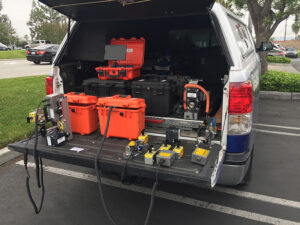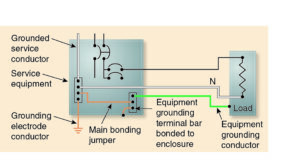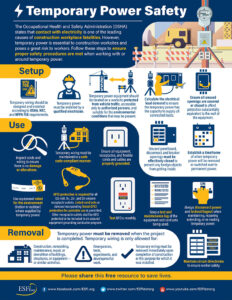All online sales on Sept. 4 to fund Team Rubicon’s inaugural TRades Academy empowering military veterans and rebuilding disaster-impacted communities As the demand for skilled workers across the U.S. reaches fever pitch – and the industry at large expected to grow 10% by 2028 fueled by emerging technology1, changing infrastructure, $18 billion-per-year climate disasters and…
Read More >>The NFPA® Certified Electrical Safety Technician (CEST) Certification has become an essential part of electrical safety in the workplace. NFPA created the CEST Certification in 2017 in response to repeated requests for a credential that would help reduce risk to personnel who are exposed to electrical hazards. Earning your CEST can help you take on…
Read More >>By Corey Hannahs, Contributor The sirens were deafening, even to my 13-year-old ears. My good friend, Heath, and I were playing an intense game of summer basketball in my driveway. The fact that I was losing and, as always, determined to win, should have been reason enough for my focus to be on the game…
Read More >>By: Corey Hannahs, Contributor Electrical safety is without question a critical component to a successful electrical installation. Yet many seem to have differing viewpoints on what is safe and what risks should be taken. At the root of every electrical safety incident is a person who made a choice, based on the information they had…
Read More >>By Steven J Abbott, REALTIME-SAFETY.com There is a growing overemphasis in the job planning process to simply use the information on an applied arc flash warning sticker. This all too often creates an unconscious disregard or forgetfulness to review other critical sources of information that are important to the electrical safety planning process and creates…
Read More >>By Justin Gaull, Contributor Smart companies know safety training is never complete. Ongoing training and testing are vital to safe, injury-free operations. Proper training (and re-training) on electrical safety equipment and procedures prevents injuries, protects electrical apparatus from damage, and promotes operational efficiencies. Ongoing training is also a requirement to meet code. NFPA 70E, (the…
Read More >>By Dean Austin, Contributor Grounding, grounded, bonding, and bonded are all terms an electrician, electrical engineer, or facility manager is familiar with and use frequently, but what does it mean to properly ground electrical equipment? The initial thought is, it’s just connecting the branch circuit equipment grounding conductor to the electrical equipment grounding terminal. In…
Read More >>Contributed by Synergy Electric Although we rely on electricity to keep our facilities up and running, certain electrical conveniences can be hazardous to you and your employees’ safety. While it’s important to be conscious of these dangers, being informed and proactive can help you keep your facility safe. How to Avoid Electrical Hazards in Your…
Read More >>Brianne Deerwester, Contributor Electricity drives our everyday lives as demand and connectivity increase in this rapidly changing digital world. As our phones, homes, and workplaces get even smarter, a greater focus should be placed on utilizing electricity safely, especially on the worksite. Workplace electrical injuries and fatalities continue to disrupt the lives of workers and…
Read More >>Attend Live Classes. Right from Home. Introducing NFPA Live Virtual Training. Attend live training and be part of a virtual classroom. It’s the same high-quality learning experience and expert instruction you’ve come to expect from NFPA® in-person classroom training—only it’s from the comfort of your own home computer. Stay Up to Date Even If You’re Staying Home…
Read More >>Leaders in Electrical Safety
• Aramark
• Bowtie Engineering
• Enespro
• Ericson
• I-Gard Corporation
• IRISS
• KERMEL, INC.
• Lakeland Industries
• MELTRIC Corporation
• National Safety Apparel
• National Technology Transfer
• Oberon
• Saf-T-Gard
• SEAM Group
Subscribe!
Sign up to receive our industry publications for FREE!













